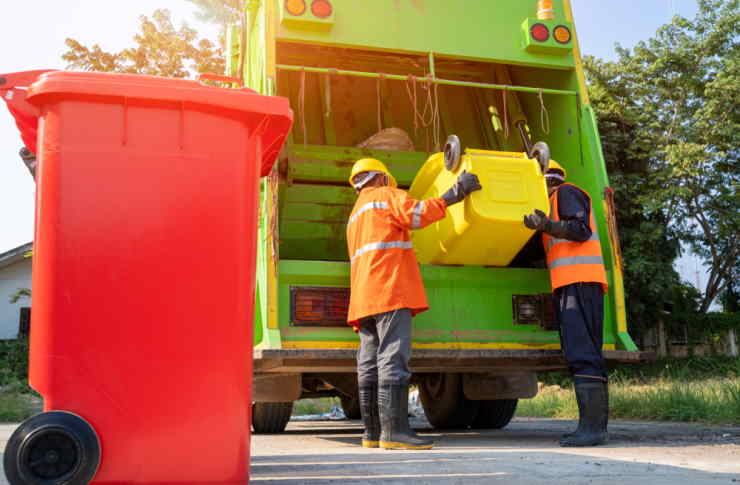Waste Management Jobs – Work Formats and Skills Overview
From recycling initiatives to landfill operations, waste management jobs span diverse operational areas. This overview highlights standard work formats, common equipment, and environmental practices that support sustainability, with notes on coordination and safety in team‑based settings.

Understanding Waste Handling and Processing Methods
Waste management involves several distinct processing methods, each requiring specific expertise and training. Collection systems vary from municipal curbside pickup to specialized industrial waste removal. Processing typically begins with waste segregation, where materials are sorted into recyclables, organic waste, hazardous materials, and general refuse.
Treatment methods include mechanical-biological treatment, where waste undergoes mechanical sorting followed by biological processing of organic components. Thermal treatment involves technologies like incineration, gasification, and pyrolysis, converting waste to energy while reducing volume. Biological methods encompass composting and anaerobic digestion, transforming organic materials into valuable products like compost or biogas. Workers specializing in these areas need comprehensive knowledge of material science, biological processes, and safety protocols.
Essential Skills for Waste Management Professionals
Success in waste management requires a combination of technical knowledge, practical skills, and professional attributes. Technical competencies include understanding waste classification systems, environmental regulations, and treatment technologies. Physical capabilities are important for many operational roles, while analytical skills support data-driven decision-making regarding waste management strategies.
Communication skills prove essential for coordinating with team members, explaining procedures to clients, and liaising with regulatory bodies. Problem-solving abilities help professionals navigate unexpected challenges such as equipment malfunctions or hazardous material incidents. Many positions require certifications in areas like hazardous waste management, equipment operation, or environmental compliance. Increasing technological integration means digital literacy and data management skills are becoming increasingly valuable across all levels of the industry.
Use of Machinery in Waste Management
Modern waste management relies heavily on specialized machinery throughout the collection, processing, and disposal chain. Collection vehicles range from traditional rear-loading garbage trucks to automated side-loaders and specialized vehicles for bulk waste or hazardous materials. These require operators with commercial driving licenses and equipment-specific training.
Processing facilities utilize sophisticated machinery including conveyor systems, optical sorters, balers, shredders, and compactors. Heavy equipment such as bulldozers, compactors, and excavators are common at landfill sites for waste placement and site maintenance. The increasing mechanization of the industry demands workers with strong technical aptitude and ongoing training to adapt to evolving technology. Maintenance technicians with mechanical and electrical troubleshooting skills are particularly valuable as they keep critical equipment operational.
Environmental Impact Reduction Techniques
A fundamental goal of modern waste management is minimizing environmental harm through various strategies. Waste diversion programs aim to keep materials out of landfills through recycling, composting, and reuse initiatives. These require workers who understand material recovery processes and contamination prevention. Landfill engineering has evolved to include sophisticated containment systems with liners, leachate collection, and gas management to prevent soil and groundwater contamination.
Emission control technologies are employed to reduce air pollution from waste processing facilities, particularly at waste-to-energy plants where scrubbers, electrostatic precipitators, and advanced combustion controls minimize harmful releases. Water conservation and protection strategies include stormwater management systems and wastewater treatment processes at processing facilities. Professionals focusing on environmental impact reduction need strong backgrounds in environmental science, engineering principles, and regulatory compliance to implement effective solutions.
Career Pathways in Waste Management
The waste management sector offers diverse career trajectories with varying educational requirements and advancement opportunities. Entry-level positions often include collection workers, sorting line operators, and equipment operators, typically requiring high school education and on-the-job training. Technical roles such as mechanics, technicians, and facility operators generally demand vocational training or associate degrees in relevant fields.
Professional positions encompass environmental compliance specialists, engineers, and facility managers, usually requiring bachelor’s degrees in environmental science, engineering, or business management. Leadership roles like operations directors and environmental program managers typically combine advanced education with substantial industry experience. The industry’s growing complexity has increased demand for specialists in areas like hazardous waste management, environmental remediation, and sustainable materials management, creating opportunities for specialized career development.
Future Trends Shaping Waste Management Careers
The waste management industry is evolving rapidly due to technological innovations and shifting environmental priorities. Automation and robotics are transforming sorting facilities, with AI-powered systems identifying and separating materials with increasing precision. This creates demand for workers who can program, operate, and maintain these advanced systems.
The circular economy approach is gaining prominence, focusing on designing out waste and keeping materials in productive use longer. This generates roles in product redesign, materials recovery, and developing new recycling technologies. Data analytics is becoming central to waste management, with professionals using information systems to optimize collection routes, track material flows, and measure program effectiveness. Those with data analysis skills combined with waste management knowledge will find expanding opportunities in this sector.
As the industry continues to transform, professionals who combine technical expertise with adaptability and environmental consciousness will be positioned for long-term career success in this essential field.




